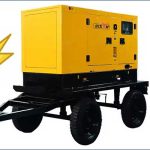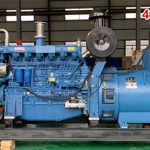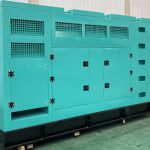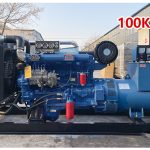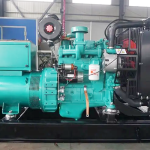A silent diesel generator is designed to operate with minimal noise, making it suitable for settings where noise control is crucial, like hospitals, schools, and residential areas. Unlike traditional diesel generators, silent models use advanced sound insulation and innovative technologies to reduce noise output.
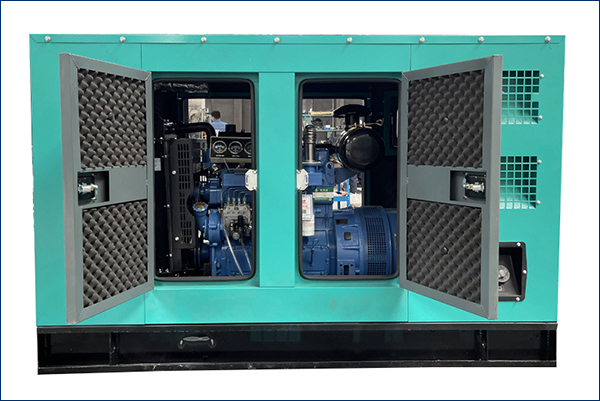
How Does Noise Reduction Work in Silent Diesel Generators?
To understand why silent diesel generators are quieter, it helps to look at their unique construction. These generators are typically housed in soundproof enclosures that absorb noise, while components like anti-vibration mounts and specialized mufflers further reduce sound. Additionally, the engines are often designed for smoother operation, which naturally generates less noise.
For example, many models are equipped with advanced exhaust silencers, which minimize the noise from exhaust emissions. As a result, the sound produced by a silent diesel generator is substantially lower compared to standard diesel generators. However, it’s important to know that “silent” doesn’t mean completely noise-free—it simply means reduced noise levels.
Here is the silent diesel generator youtube video details in our factory for your reference!!
How Loud Is a Silent Diesel Generator?
The noise level of a silent diesel generator usually falls between 60 and 80 decibels (dB), which is comparable to a normal conversation or the background noise in a quiet office. In contrast, traditional diesel generators can easily reach 90-100 dB, which is as loud as heavy traffic. The reduced noise makes silent diesel generators much more acceptable for use in areas sensitive to sound.
However, the noise level can vary depending on the generator’s size and the quality of its soundproofing materials. Smaller generators with effective insulation may produce as little as 55 dB, while larger models might still generate around 75 dB. To put this into perspective, most people find sounds below 70 dB to be non-disruptive, while levels above 85 dB can start to become uncomfortable.
Factors Influencing the Noise of a Silent Diesel Generator
Various factors affect how much noise a silent diesel generator will produce. Here are some key factors:
Engine Size and Power Output: Larger engines typically generate more power, which can result in higher noise levels. However, high-quality silent diesel generators are designed to balance power with sound reduction, making them efficient without excessive noise.
Insulation and Soundproofing: The materials and design used for insulation play a crucial role. Many silent diesel generators come with soundproof casings made of materials like steel or composite layers, which can absorb and block sound effectively.
Location of Installation: Where the generator is installed can impact how much noise it produces. If placed near walls or in a confined space, the sound may echo, making it seem louder. On the other hand, installing the generator in an open area allows sound to dissipate more freely, reducing perceived noise.
Exhaust System: The design and quality of the exhaust system directly affect noise levels. Advanced exhaust silencers are often used in silent diesel generators to reduce noise caused by exhaust emissions.
Engine Speed: Generators with engines that operate at lower speeds (such as 1500 RPM) produce less noise compared to those running at higher speeds like 3000 RPM.
Measuring Noise Levels: Decibels and the Human Ear
Decibels (dB) are used to measure sound intensity, and it’s essential to note that the human ear perceives noise logarithmically. A difference of 10 dB represents a sound that is twice as loud to human ears. Therefore, a generator running at 70 dB will sound roughly twice as loud as one running at 60 dB.
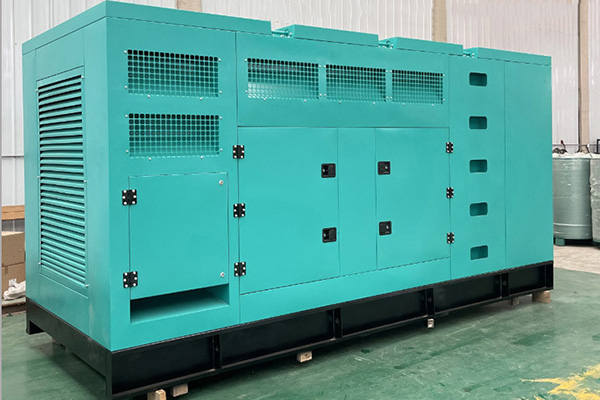
When choosing a silent diesel generator, understanding decibel levels can help ensure that the model you select meets the noise requirements of your environment.
Silent Diesel Generators vs. Other Quiet Power Solutions
While silent diesel generators are popular for their low noise, they are not the only option available. Alternative solutions like inverter generators and battery-based systems also produce minimal sound. Inverter generators, for instance, use technology that adjusts the engine speed based on power demand, which keeps noise levels low. However, unlike silent diesel generators, inverter models may not provide as much continuous power, especially in large-scale applications.
Battery-based power solutions, such as solar battery systems, operate silently but require substantial initial investment and depend on energy storage. Silent diesel generators, by contrast, provide an immediate, reliable source of power with moderate noise control, making them ideal for backup power in most settings.
Tips for Further Reducing Noise from a Silent Diesel Generator
If you want to minimize the noise from a silent diesel generator, there are additional steps you can take:
Choose the Right Location: Positioning the generator at a distance from frequently used areas can reduce the impact of noise. Enclosures or acoustic barriers can be added around the generator to further dampen sound.
Use Acoustic Enclosures: Upgrading to a high-quality acoustic enclosure can make a noticeable difference in sound reduction. These enclosures are typically available with multiple layers of insulation, specifically designed to block noise.
Maintenance: Regular maintenance ensures that the generator operates smoothly, which can reduce noise. Well-maintained engines generally produce less vibration and run more quietly.
Install Vibration Pads: Adding vibration-absorbing pads under the generator can reduce the amount of sound transmitted through floors and walls.
Balancing Noise Control with Power Needs
For users, the primary advantage of a silent diesel generator is its ability to provide substantial power with reduced noise. However, choosing the right model involves balancing noise control with power requirements. Smaller models might be quieter but may not provide enough power for industrial needs. Larger models, while slightly louder, offer higher outputs and are often equipped with better noise control mechanisms to keep sound levels reasonable.
It’s worth consulting with an expert or checking the manufacturer’s specifications to understand the expected decibel level of a specific model. Also, reviewing local noise regulations can ensure compliance, especially in residential or urban areas where noise restrictions are often stricter.
Conclusion
A silent diesel generator is an excellent choice for those who need a reliable power source without disruptive noise levels. Although it may not be entirely “silent,” the noise produced by these generators is significantly lower than traditional diesel models. With decibel levels typically between 60 and 80 dB, silent diesel generators are quiet enough for sensitive environments, while still powerful enough to handle heavy-duty applications.
When selecting a silent diesel generator, considering factors like engine size, soundproofing, installation location, and maintenance can further reduce noise. Silent diesel generators provide a practical balance between power and peace, making them ideal for residential and commercial use alike.
In the end, understanding the noise characteristics of a silent diesel generator will help you make an informed decision. By choosing a generator that meets both your power needs and noise preferences, you’ll enjoy reliable energy with minimal disturbance.






